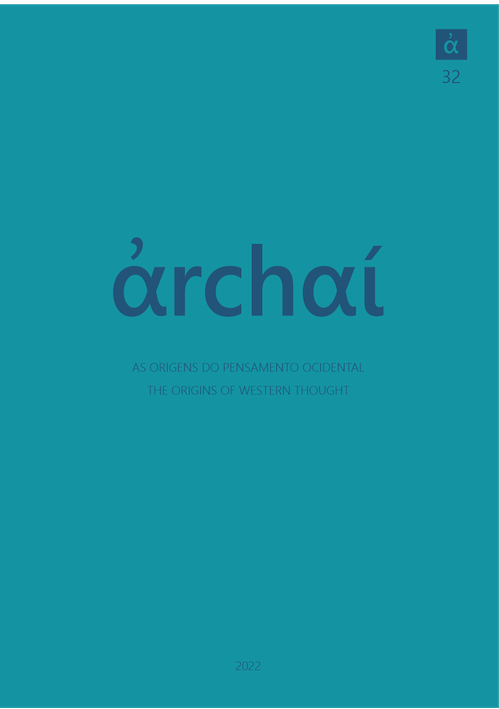Review of Reis, M. C. G. Cartas & Máximas Principais, “Como um deus entre os homens”(2020)
DOI:
https://doi.org/10.14195/1984-249X_32_19Keywords:
review, translation, EpicurusAbstract
Review of Reis, M. C. G. Cartas & Máximas Principais, “Como um deus entre os homens”(2020)
Downloads
References
ANNAS, J. (1995) The Morality of Happiness. Oxford, Oxford University Press.
ANSCOMBE, E. (1958) Modern Moral Philosophy. Philosophy 33, n. 124, p. 1-19.
COOPER, J. (1999) Pleasure and Desire in Epicurus, In: COOPER, J. Reason and Emotion. Princeton, Princeton University Press.
DE NEVE, J-E.; DIENER, E.; TAY, L.; XUEREB, C. (2013) The Objective Benefits of Subjective Well-being. CEP Discussion Papers, N.1236. Centre for Economic Performance, London School of Economics and Political Science, London, UK.
DIENER, E.; TAY, L.; OISHI, S. (2013) Rising income and the subjective well-being of nations. Journal of Personality and Social Psychology, n. 104, v. 2, p. 267-276.
HIDAKA, B H. (2012) Depression as a Disease of Modernity: Explanations for Increasing Prevalence. Journal of Affective Disorders, n. 140, v. 3, p. 205–14.
REIS, M. C. G. (2020) Cartas & Máximas Principais, “Como um deus entre os homens.” Epicuro. São Paulo, Penguin/Companhia das Letras.
VOGT, K. (2018) What is Hedonism? In: HARRIS, W. (ed) Pain and Pleasure in Classical Times. Leiden, Brill, p. 93-110.
WOOLF, R. (2004) What Kind of Hedonist was Epicurus? Phronesis 146, p. 303-322I.
Downloads
Published
How to Cite
Issue
Section
License
Copyright (c) 2022 Celso Vieira

This work is licensed under a Creative Commons Attribution 4.0 International License.
Given the public access policy of the journal, the use of the published texts is free, with the obligation of recognizing the original authorship and the first publication in this journal. The authors of the published contributions are entirely and exclusively responsible for their contents.
1. The authors authorize the publication of the article in this journal.
2. The authors guarantee that the contribution is original, and take full responsibility for its content in case of impugnation by third parties.
3. The authors guarantee that the contribution is not under evaluation in another journal.
4. The authors keep the copyright and convey to the journal the right of first publication, the work being licensed under a Creative Commons Attribution License-BY.
5. The authors are allowed and stimulated to publicize and distribute their work on-line after the publication in the journal.
6. The authors of the approved works authorize the journal to distribute their content, after publication, for reproduction in content indexes, virtual libraries and similars.
7. The editors reserve the right to make adjustments to the text and to adequate the article to the editorial rules of the journal.



